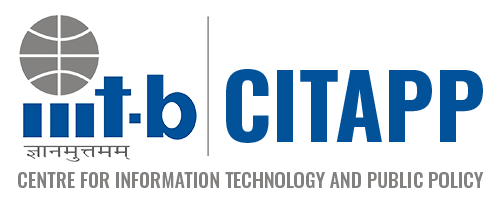Date: 15-07-2016
Description: Dr. Michael L. Best of United Nations University Institute on Computing and Society (UNU-CS) and Georgia Institute of Technology delivered a talk on ‘Peace, Gender & Data: ICTD Research and the United Nations’ on 15th July 2016.
About the talk
UNU-CS is a new research and policy intensive institute at the intersections of information and communication technologies and international development (ICTD). In this talk, Dr. Michael Best introduced UNU-CS and provided an overview of their three initial research focus areas:
• ICTs for peacebuilding and to support human security, respond to crises, and mitigate human displacement;
• ICTs that promote women’s empowerment and enable sustainable community led development; and
• ICTs that create actionable knowledge from local data, empower citizens with data they trust, and improve global datasets with local data.
He also spoke about new and emerging research projects across these foci.
About the speaker
Dr. Michael L. Best directs the United Nations University Institute on Computing and Society (UNU-CS) in Macau SAR, China. He is a Professor, on leave, with the Sam Nunn School of International Affairs and the School of Interactive Computing at Georgia Institute of Technology where he directs the Technologies and International Development Lab. He is the co-founder and Editor-in-Chief Emeritus of the widely read journal, Information Technologies and International Development and leads the Global Computing column for Communications of the ACM. He holds a Ph.D. from MIT and has served as director of Media Lab Asia in India and head of the eDevelopment group at the MIT Media Lab. His research focuses on information and communication technologies (ICTs) for social, economic, and political development. In particular he studies mobile and Internet-enabled services and their design, impact, and importance within low-income countries of Africa and Asia. He researches engineering, public policy, and business issues as well as methods to assess and evaluate development outcomes. He is also interested in the impact of ICTs on the development-security nexus and on post-conflict reconstruction and reconciliation.

